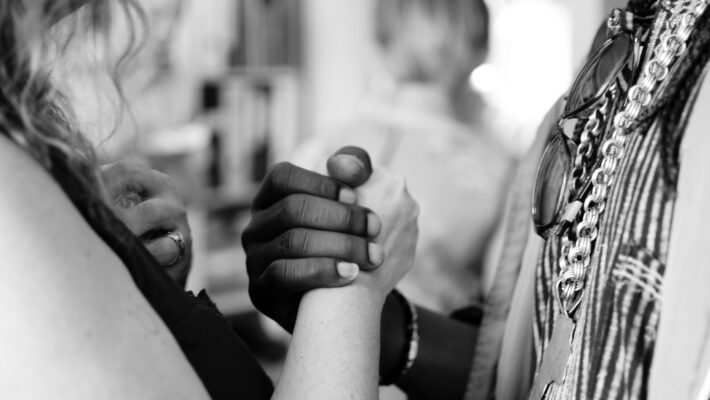Back in July, Vox writer David Roberts, a white man, posted an informal Twitter poll asking “Do white people have a positive or negative effect on America?” Outrage ensued, of course.
The Tweet was a response to a more formal survey about whether racial diversity has a positive or negative impact on America. Perhaps it was a prodding commentary as well. Roberts observed that “white people rarely if ever experience questions like this, about their very legitimacy. Do they belong? Is having more of them around good for America?”
And so he prodded. Is it good to have white people here? The firestorm of ugliness that ensued revealed 82 percent of Twitter respondents to declare white people’s presence in America as a super positive thing. Bump it, bro.
Can you believe there were a lot of lengthy opinions on the matter? Many respondents were irate about the use of the term “white people,” because white people, and especially cishet white men, are not used to being categorized (as if they’re some kind of animals, and not the universal scientists! The nerve).
As Roberts notes, “it’s difficult to think of a US setting in which the words ‘white people’ are received neutrally. The term is always charged somehow, freighted with meaning and potential conflict, vaguely subversive.”
You’re Reading This! That’s Positive.
The fact that you opened this article and weren’t scared off by the term ‘white fragility’ is promising in itself. But don’t pat yourself on the back just yet! Many white people believe themselves to be forward thinking allies, but do a 180 at the first sign of real life people of color or Spanish-speaking immigrants.
A Harvard study showed that white liberals are more likely to smile upon immigration and diversity when they don’t actually encounter it in their daily lives. Yikes! When the test subjects, members of homogenous white communities, were primed by encountering Spanish-speaking Latinos on their daily train commutes, they ended up shifting their generous liberal attitudes to a more conservative stance favoring exclusionary immigration policies.
So where do you fall? Are you a lip service only liberal, ready to high-tail it when real POC take the stage? An outraged ‘regular person’ who balks at the term “white people” and proclaims not to see race? Or a white traitor acting as an accomplice in tearing down oppressive systems of power and marginalization? Take this fun quiz to find out!
Questions to Ask Yourself to Expose White Fragility:
- Do I avoid the topic of race?
- Do I feel or act defensive when someone identifies something I said or did as racist?
- Do I believe in ‘reverse racism’ against white people?
- Do I cite my good intentions as proof that I’m not racist?
- Do I cite my POC friends, acquaintances or family members as proof that I’m not racist?
- Do I have vague feelings of tension or guilt when approached by a POC?
- Have I ever pointed out that the Irish or Italians were discriminated against, too?
- Do I feel compelled to say “not all white people”?
- When a POC is speaking about their experience, do I follow up with my own opinion or experience?
- When a POC is speaking about their experience, do I apologize on behalf of white people?
- Does this quiz make me uncomfortable?
Now try this one:
- Do I seek out opportunities to talk about race?
- Do I welcome being called out as racist as an opportunity to improve my perspective and dismantle ingrained behavior I’m not aware of?
- When a POC is speaking about their experience, do I shut up and listen?
- In conversations about race, am I able to put my personal feelings aside?
- Do I accept that I belong to a category of people, and am not the default?
- Do I read, repost, retweet, amplify and center POC voices at any given opportunity?
- Do I acknowledge that even if I don’t harbor ill will towards POC, I still benefit from power systems that promote white success and non-white marginalization?
- Do I educate myself about anti-racism without putting the onus of education on POC in my life?
- Do I know the difference between ‘not racist’ and ‘anti-racist’?
- Am I Googling that right now to get informed instead of asking a POC in my life to perform the labor of teaching me?
- Does this quiz make me say “hell yeah, I’m rooting white supremacy out of my mind by forcing myself into uncomfortable growth”?
You probably get the idea. But just for the sake of clarity: if you answered ‘yes’ to many of the questions in the first quiz, you are like a fragile white flower, begging not to be touched by the icy winds of reality others face every day. Good news, though! That’s not a life sentence. It just means there’s work to do.
If you answered ‘yes’ to many of the questions in the second set, you have the kind of thick skin not usually associated with a lack of melanin. You’re in a position to do more than just self-identify as an ally. You’re ready to act as an accomplice in anti-racism. Best way to start? Each one teach one. Pass this quiz on to your friends, fair and pale. See if they fare well or fail.


